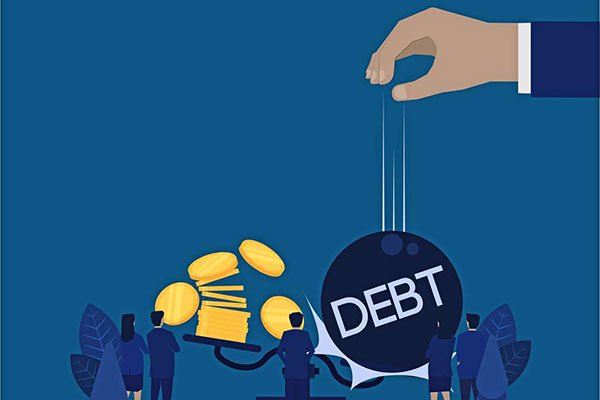The Fiscal policy partner and Africa Tax Leader at Price Waterhouse Coopers, Mr Taiwo Oyedele, has said that Nigeria’s public debt over the past five years (2015-2020) had expanded by an average of 21.02 percent while economic growth figure averaged 0.15 per cent.
Oyedele made the assertion while speaking on the theme: “Nigeria’s Rising Debt Profile: Issues and Implications for Sustainable Economic Development “, on Saturday in Lagos.
He said that revenue on the other hand expanded by an average of 5.19 per cent.
The event was organised by the Chartered Institute of Bankers of Nigeria (CIBN).
The tax expert said over the same period, the public debt stock expanded by 155.66 per cent (point -on-point estimate) while economy expanded 3.42 per cent. Revenue expanded by 14.76 per cent.
“By implication, the rate of expansion in public debt in Nigeria is fast outweighing the revenue mobilization capacity of the government.
“Consequently, the debt to GDP ratio expanded from 20.32 per cent in 2015 to 34.98 per cent in 2020 (IMF).
“This pace of increase in the public debt stock, particularly, raised the fiscal sustainability concerns on Nigeria,’’ he said
Therefore, he said that Nigeria’s debt profile was somewhat understated particularly because of ways and means facility as the country was not rich as perceived by Nigerians but had the potential of being rich.
The Director-General of the World Trade Organisation, Dr Ngozi Okonjo-Iweala, urged the banking sector to join hands with the FinTECHs, to work on the country’s debt profile.
“I’m honoured to be made a fellow of a prestigious Chartered Institute of Bankers of Nigeria. I want to thank the institute for the excellent work it has done to uphold the professional and ethical standards of the Nigerian Banking Industry as well as its effort to educate new generation s of bankers.
“Nigeria’s banking sector has contributed immensely to the development of the country and indeed the continent; there is still so much to be done and our financial services industry including the emerging FinTech sector has a strong role to play,’’ she said.
Okonjo-Iweala said the theme chosen by CIBN for deliberation was an important one as the institution already had the necessary professional insight on issues on debt and debt sustainability be it at the individual institutional or national level.
The CIBN President, Dr Bayo Olugbemi, urged stakeholders in the banking and finance industry to continually support efforts and initiatives of government aimed at improving the economy toward inclusive growth and development.
He however, urged government to do all to minimize excessive borrowing.
“I would like to propose that we continually strive to reel in our rising debt profile. Just like the Latin Americans, let us embrace import substitution models that ultimately promote home grown products and services, economic growth, and sustainable development.
“ We must also pursue the path of efficiency, ensuring that all reoccurring costs that may potentially lead to excessive borrowing are reduced to the barest minimum,’’ he said.




